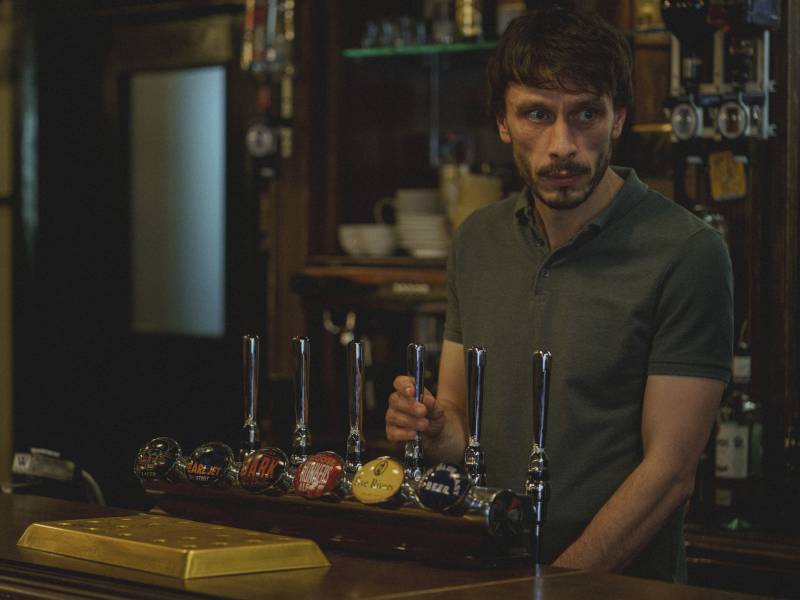But it does want us to believe — in fact it entirely depends upon us believing — that Donny, for one, experienced same-sex desire only after his abuse — desire it goes out of its way to depict as filthy and degrading. It does, too, want us to believe that Donny failed to make any romantic connections with women or men after his abuse — until he met Teri (Nava Mau) on a trans dating site.
Gadd himself identifies as bisexual, which makes it all the more puzzling and frustrating that, again and again, the series takes absurd pains to present Donny as someone who is not at all like the kinds of queer folk who (shudder!) willingly have sex with each other and (shock horror!) use recreational drugs and (gasp!) watch porn.
Rest assured, straight audiences: Donny’s queer sexuality was something forced upon him — a fact that his stoic father (Mark Lewis Jones) understands and underscores because, as he tearfully explains to his son, “I grew up in the Catholic Church.”
It’s a jaw-dropping scene, but not for the reason it wants to be. It’s meant as a moment of startling honesty and searing empathy between father and son.
It plays like a tasteless, homophobic joke.
Sticking the dismount
For all its queasy discomfort with, and prissy diffidence about queer sexuality, there is one thing Baby Reindeer gets absolutely, hauntingly right: Its ending.
As the series concludes, Martha has been jailed for stalking Donny. In a thinner, less resonant series, our hero would take this as an unalloyed victory, as vindication. But smartly, Gadd shows us a Donny who has acknowledged his abuse but has only begun to effectively deal with it.
Donny, instead, wallows. He walks the streets, playing Martha’s tender/terrifying voicemails in his headphones. He sets out to confront his abuser, only to cave and accept a job working for him. He shambles through his life alone, until he enters a pub (Man walks into a bar) and realizes he can’t pay for his drink. The handsome bartender comps him out of pity, just as Donny did to Martha in the first episode. The end.
… OK, that pity-drink callback at the very end is a bit on-the-nose, but the series’ refusal to afford Donny a clear, uncomplicated, once-and-for-all victory is a smart one. Had the series ended with a sense of triumph and finality, it would have been dramatically satisfying but emotionally dishonest. Human psychology is more complex than that, and the damage done by abuse more insidious.



